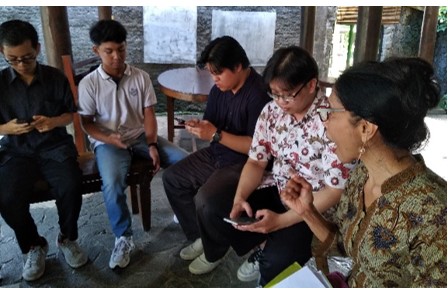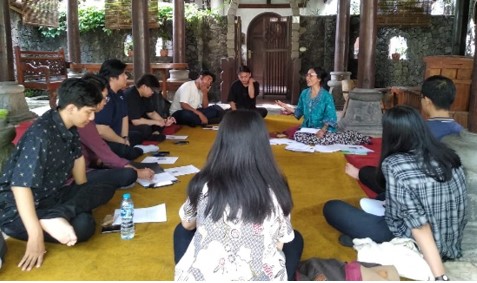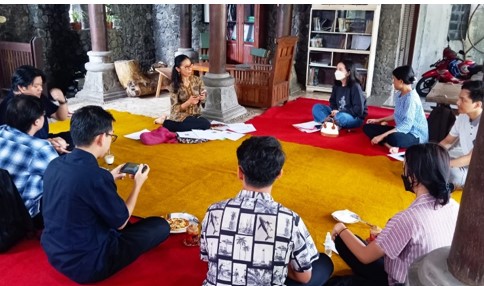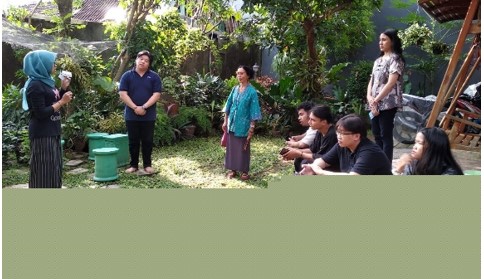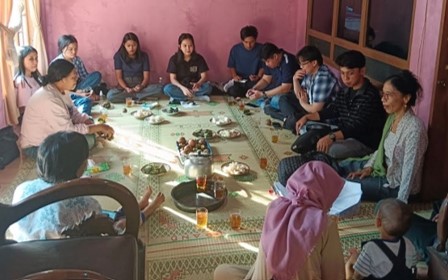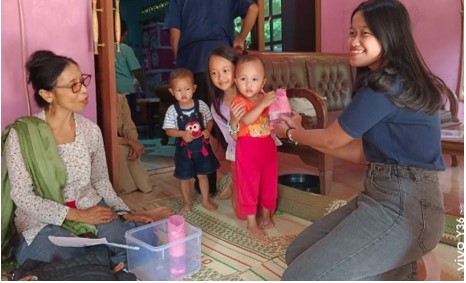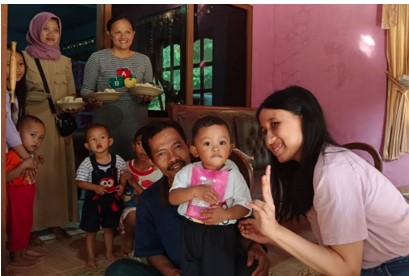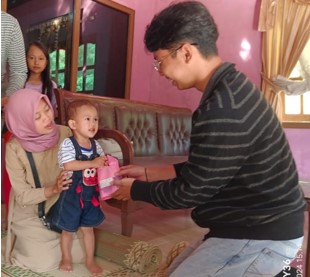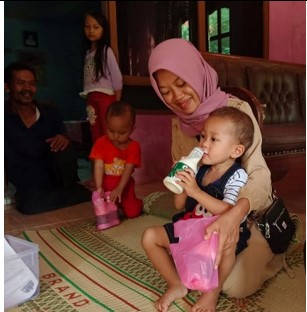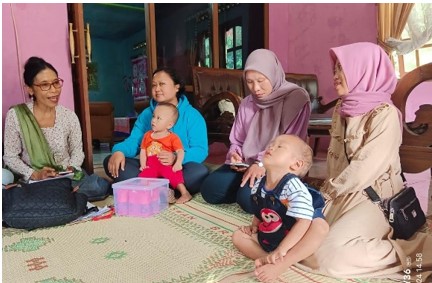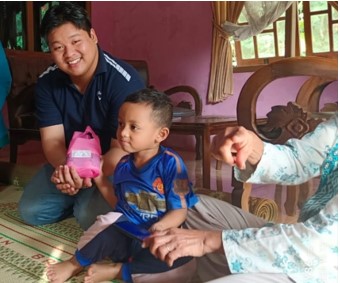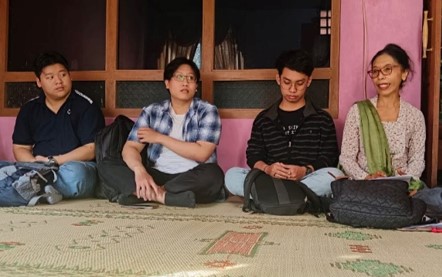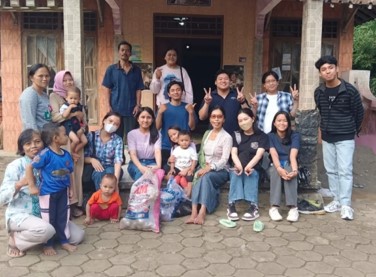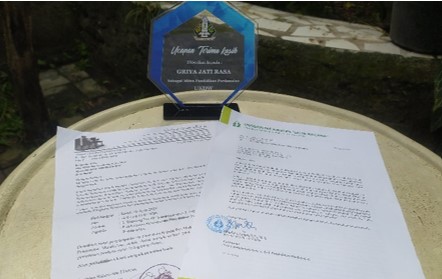A Letter from Farsijana Adeney-Risakotta, mission co-worker serving in Indonesia
Summer 2024
Write to Farsijana Adeney-Risakotta
Individuals: Give online to E132192 in honor of Farsijana Adeney-Risakotta’s ministry
Congregations: Give to D500115 in honor of Farsijana Adeney-Risakotta’s ministry
Churches are asked to send donations through your congregation’s normal receiving site (this is usually your presbytery)
Subscribe to my co-worker letters
My beloved family, friends and colleagues,
Does peace lead to happiness? Will income inequality, which causes a wide gap between the poor and the rich, create a peaceful society? How can I understand the relationship between business and peace? How can I learn to develop sensitivity to the potential for conflict due to differences in socio-economic inequality in society? These questions were formulated by Duta Wacana Christian University (DWCU) students when they learned about peace education practiced by the Griya Jati Rasa Foundation or the House of Authentic Sense (HAS). Eleven students from the Information and Technology, Biotechnology, and English and Management departments were sent to HAS to study the practice of peace education. HAS was chosen by DWCU because it is an institution for studying and empowering national creativity for justice and peace.
It is important to note that HAS Foundation and HAS Co-op are two separate institutions in terms of management, funding, and work programs even though their activities are interconnected. HAS Foundation facilitates cooperative activities related to education and training. HAS Co-op, on the other hand, carries out three main programs: savings and loan, trade, and education/training programs.
I led the learning program which included four face-to-face meetings. The first gathering was used to plan learning activities for the next three face-to-face meetings and also to create 13 questions that were jointly formulated. Each student was asked to answer two of the questions while two students were asked to answer the same question. Students shared their answers with the other students before the second gathering.The 13 questions can be accessed here: bit.ly/Farsijana-13-questions. Education needs to precede practice. Only then can students understand the reasons the work is being carried out in the way that it is. During the meeting, the students also saw the activities carried out by the management of the HAS Co-op firsthand. They interviewed HAS Co-op staff and the Adiluhung House of Yogurt staff.
They were very interested in the Adiluhung program, which provides yogurt from buyers to babies and mothers whose growth falls short of expectations. Therefore, at the fourth meeting, I invited them to visit the babies and mothers on Menoreh Hill, who receive gifts of yogurt.
When we went to Menoreh, the mothers and children were waiting for us to arrive. The students brought free yogurt from Adiluhung House of Yogurt where they had purchased yogurt two weeks before we went up the mountain. Along with their 500 milliliters of free yogurt, 1,500 milliliters from other buyers were donated to the babies and mothers. Four students were chosen to give yogurt directly to the four babies.
The delivery of the yogurt was witnessed by all attendees including the Gowok hamlet Guidance for Family Welfare (Pembinaan Kesejahteraan Keluarga (PKK)) coordinator, Mrs. Ranti. PKK is a national women’s organization that operates at the village level. The PKK is supported by the Indonesian government and tasked to carry out women’s empowerment activities. One baby named Zio asked his mother to open the bottle of yogurt as soon as he received it. He immediately drank the yogurt with gusto. We all watched it in amazement. A student, Jerry, asked Zio’s mother, Tari, “Why does Zio like drinking yogurt even though it tastes a bit sour?” Tari answered that her child didn’t like sweet food and drinks. He likes yogurt because it tastes similar to breast milk. Processed milk does not taste as natural as breast milk and yogurt. “Zio, who had previously suffered from diarrhea, recovered by drinking yogurt, without taking any medicine,” Tari explained while affectionately watching her child enthusiastically drink the yogurt.
Tari is also a PKK cadre in Gowok hamlet. She was 23 years old when Zio, her first child was born. Even though she was a PKK cadre, who participated in providing education to other mothers about how to live a healthy family life, she gave birth to a child who was smaller than expected with a low birth weight. Tari then testified, “I am now repenting. Previously, I lived a lifestyle where I ate spicy food without vegetables or other nutritious foods. This caused my child to be born very small. Therefore, I urge female students to start paying attention to their diet so that when they get married, their bodies are ready and healthy to give birth to healthy children.”
The meeting was very moving because the male students also learned that if they want to be fathers, they need to play a role in ensuring their wives get healthy food. They are also starting to realize that yogurt made with natural ingredients is a nutritious and healthy food like breast milk. The discussion flowed freely in a friendly fashion. The conclusion was made by underlining that the entrepreneurial activities carried out by providing free yogurt to program beneficiaries were possible because of the creative ideas developed by the HAS Foundation. These ideas are also supported by persistence in following up, especially ensuring that the program from yogurt buyers to children who are not as tall as expected for their age.
We received several bags containing fruit from parents of children who were beneficiaries of HAS Foundation’s program to combat low height-for-age levels in children. The students’ reflections were presented to the lecturers in the DWCU’s Humanities Studies Elective Course on Peace (ukdw.ac.id/unit/mkhukdw). They stated that the sales system that involves buyers addressing social problems contains aspects of innovation to overcome potential conflict and violence in society. HAS Foundation has made a breakthrough in bringing justice and peace by using a “peace” approach. The results of these reflections were conveyed to us when Rev. Nani Minarni, who teaches this course, came to the HAS Foundation office to express her appreciation. (ukdw.ac.id/nani-minarni).
Thank you, very much, for supporting my ministry through DWCU, which impacts the larger society in Indonesia. I hope you enjoyed this story about how God works through us to heal individuals and societies. God bless you all.
Salam (Peace), Farsijana
![]() You may freely reuse and distribute this article in its entirety for non-commercial purposes in any medium. Please include author attribution, photography credits, and a link to the original article. This work is licensed under a Creative Commons Attribution-NonCommercial-NoDeratives 4.0 International License.
You may freely reuse and distribute this article in its entirety for non-commercial purposes in any medium. Please include author attribution, photography credits, and a link to the original article. This work is licensed under a Creative Commons Attribution-NonCommercial-NoDeratives 4.0 International License.
